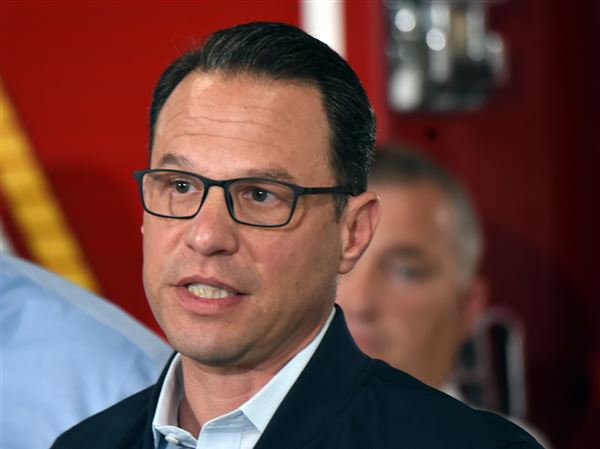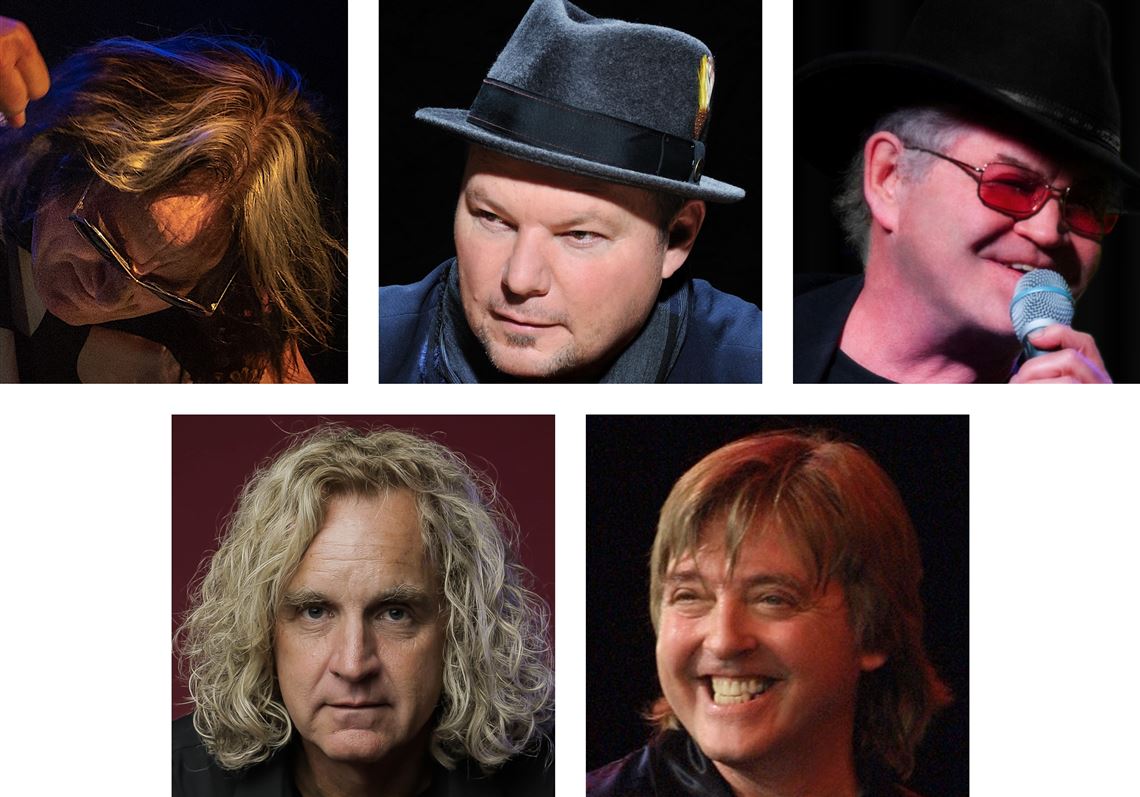Paul McCartney had to be scratching his head over this one.
Todd Rundgren, Micky Dolenz, Christopher Cross, Jason Scheff (Chicago) and Joey Molland (Badfinger) on the road with a 50th anniversary tribute to The Beatles’ “White Album”?
It seems like a totally random bunch of musicians — somewhat like Ringo Starr and his All-Star Band lineups, which is why Ringo probably gets it.
Scheff, the youngest member of the group, at 57, was too young to have been affected by “The White Album” when it came out in 1968 and never spent that much time with it. The singer-bassist from San Diego was busy listening to Elton John and Chicago, a band he would join when he replaced frontman Peter Cetera in 1985. He would continue the band’s amazing chart run with five more Top 10 hits, including “Will You Still Love Me,” “I Don’t Wanna Live Without Your Love” and “Look Away.”
Scheff had an impressive musical pedigree, with his father, Jerry, having been in Elvis Presley’s band from 1969 to 1977 and also playing on The Doors’ “LA Woman” album, among other things.
Jason started out in 1982 in the LA band Keane and also played with the guys who went on to form Ratt. He left Chicago in 2016 for family reasons, just a few weeks after the band’s Rock and Roll Hall of Fame induction. He recently released a solo album, produced by Jay DeMarcus of Rascal Flatts (who also produced Chicago XXX), that includes new material along with reworked versions of Chicago hits.
On the It Was 50 Years Ago Today tour, which stops at the Palace Theatre in Greensburg Saturday, the musicians interrupt “The White Album” with some of their own classic hits.
Last week, Scheff explained by phone.
First off, tell me your history with “The White Album.”
I’m 57 years old, so I’m basically an ’80s artist and when I go out and do these shows it’s a boomer audience predominantly, and when I get asked, how ‘The White Album’ affected me personally when it came out, I go, “Well, I was 6, so I don’t really remember that,” but the cool thing is, when I started listening to music, Elton John was and is my guy, and all of those guys were influenced heavily by The Beatles. Dee Murray, [John’s] bass player and my first bass influence, was a massive McCartney fan. Peter Cetera, who I replaced, was a massive Beatles fan, as was the band, so I was getting it secondhand, so going back and playing the music and figuring out what my DNA is made of, it’s been amazing. When I play the two Chicago songs in my set, people connect the dots and say, “Oh, this is the guy who was the link between the ’70s and ’80s Chicago.”
So, did you get into “The White Album” at all before this?
Truthfully, only to learn it for this tour, but it was the coolest thing to uncover where you came from. I didn’t realize it that much ‘til I started dissecting the music. I loved the ’70s Chicago. I became a fan when I was 10, maybe 11 years old, so I knew that music inside and out. And then hearing “The White Album,” I was like, “Oh my god, this is where all that came from — all that adventurous songwriting and spirited bass stuff.”
So, how did you get involved in this tour?
Toby Ludwig is one of the producers and he’s Christopher Cross’ manager. I came to him through Jay DeMarcus of Rascal Flatts, who produced Chicago XXX in 2006, and we started the solo record on the heels of that and finally just finished. So, he started looking for agents who might want to book me as a solo act. They sent me to Toby. Toby said, “I’d love to work with him. I have this tour he might be interested in working on with an all-star band performing ‘The White Album’: Todd Rundgren, Micky Dolenz, Christopher Cross, Joey Molland of Badfinger.” I said, “Absolutely!” That’s how it all came together for me.
What happened when you all got together for the first time?
That’s a good question because the potential for it being weird with all these personalities having all this music history, the potential for it being strange and weird and distant is huge. However, the cool thing is, once you get a collection of people who are really about the music, which is what this group is, everyone has a distinct thing that they bring to the table. So, this incredible respect started happening right off the bat, and once we went out and started living together, it’s been incredible. Everybody’s hanging out together and it’s been like this awesome summer camp thing.
But how did you tackle the music, just starting from scratch. It’s not easy stuff to play, right?
Exactly. But I’ve always loved that kind of challenge as a bass player and a singing bass player. And I’ve been in an incredible band, Chicago, for most of my adult life. We tapped a guy who was one of the founding members and musical directors from a production called RAIN, Joey Curatolo. He brought the essence of that music into it, along with the drummer, Darin Murphy, who played in John Lennon in “Lennon,” the musical on Broadway, so these guys are super stepped in how to pull this stuff off to make you feel like you’re actually hearing the album.
How do the voices work on the songs and how did you determine who was going to sing what?
Well, I figured that being what I’m known for, which is kind of a softer tenor, a ballady voice, that Christopher Cross and I would probably be choosing the same songs, so when they asked me what I wanted to sing, I said, “I’ll tell you as long you send a message to Christopher that I’m in no way saying ‘I’m taking ‘Blackbird’! Sorry, buddy.’ ” I said, “We’re probably going to be choosing the same songs, and let him have them. Basically, it’s all so great on that record, whatever’s left I’ll take.” So, I ended up getting a bunch of Lennon songs, which is not expected of me, but it’s ended up being really fun.
What’s Micky’s specialty on this?
Micky’s specialty is that he’s such an incredible performer. He’s got, obviously, such an incredible comedy sense to him. But people don’t understand what a brilliant singer and artist he is, and by the way, this guy’s IQ is off the charts. You’d be amazed because he’s known for being a zany Monkee. He takes the stage and it’s almost bordering on the most entertaining, off-the-charts, over-the-top Vaudeville stuff, but with this incredible musicality and artistry coming through on it. So, of course, he took songs that lend themselves to super theater, like “Rocky Raccoon” and “Why Don’t We Do It in the Road?” And then you’ve got Todd who is also such an incredible performer and can go into the theatrical thing, so he’s got costume changes. It’s this thing that is so fun, because it’s all centered on “The White Album,” but you’re hearing five distinct artists and what they’re known for, our sounds.
What was it like for you having to leave Chicago after all those years?
Here’s what happened. I’m 57, and eventually life is going to hit where you have to make some decisions, and my in-laws became ill and we lost my father-in-law first and my mother-in-law was basically told this is the final march, with breast cancer. I just could never express my gratitude for being able to go to the guys and tell them that I needed to go home and take care of my family. And they just absolutely understood and were so gracious to give me that opportunity. Somebody who was in a position like I am, having been the focal point and basically the future of the franchise of that band, it’s not easy to make that transition. However, Chicago is such an amazing entity that it’s really about a brand and a logo and a sound. And I knew this, and Robert Lamm has talked about this openly, that this band will survive way beyond any particular member that’s in it. In 200 years, when we look back on the greatest classical composers’ works, Chicago will be revered in the same way. I know that. Chicago’s out there continuing to tour and sounding awesome as ever, I’m going to be doing some solo dates performing the music I’ve been a part of these years, so everybody wins. I love the family I was asked to be part of in 1985.
Finally, tell me about your father. You were probably too young to be aware of his work at the time.
Exactly, just like “The White Album,” I didn’t even know my father was on that record until I was probably 14 or 15. Didn’t even know. My parents split up when I was really young and even if my parents had stayed together, I still wouldn’t have grown up with them, because they were on the road all the time, just as it’s been with me for my kids. So, I didn’t grow up around all that.
Were you ever able to get close with him after that?
Oh yeah. We’ve spent plenty of time. He played on the “Stone of Sisyphus” album with Chicago. We got him to come in and play on a song I co-wrote with Peter Wolf and his wife Ina called “Bigger Than Elvis.” It’s about me watching the 1973 “Aloha from Hawaii” special. It was painful for me. I was 7 years old and didn't have a lot of contact with my father, so here’s Elvis Presley coming on TV with this unprecedented event of being satellite broadcast all over the world, and I barely noticed Elvis. I was looking for my dad.
IT WAS 50 YEARS AGO TODAY
Where: Palace Theatre, Greensburg.
When: 7:30 p.m. Saturday.
Tickets: $29 to $59.75; thepalacetheatre.org.
First Published: November 26, 2019, 1:00 p.m.















